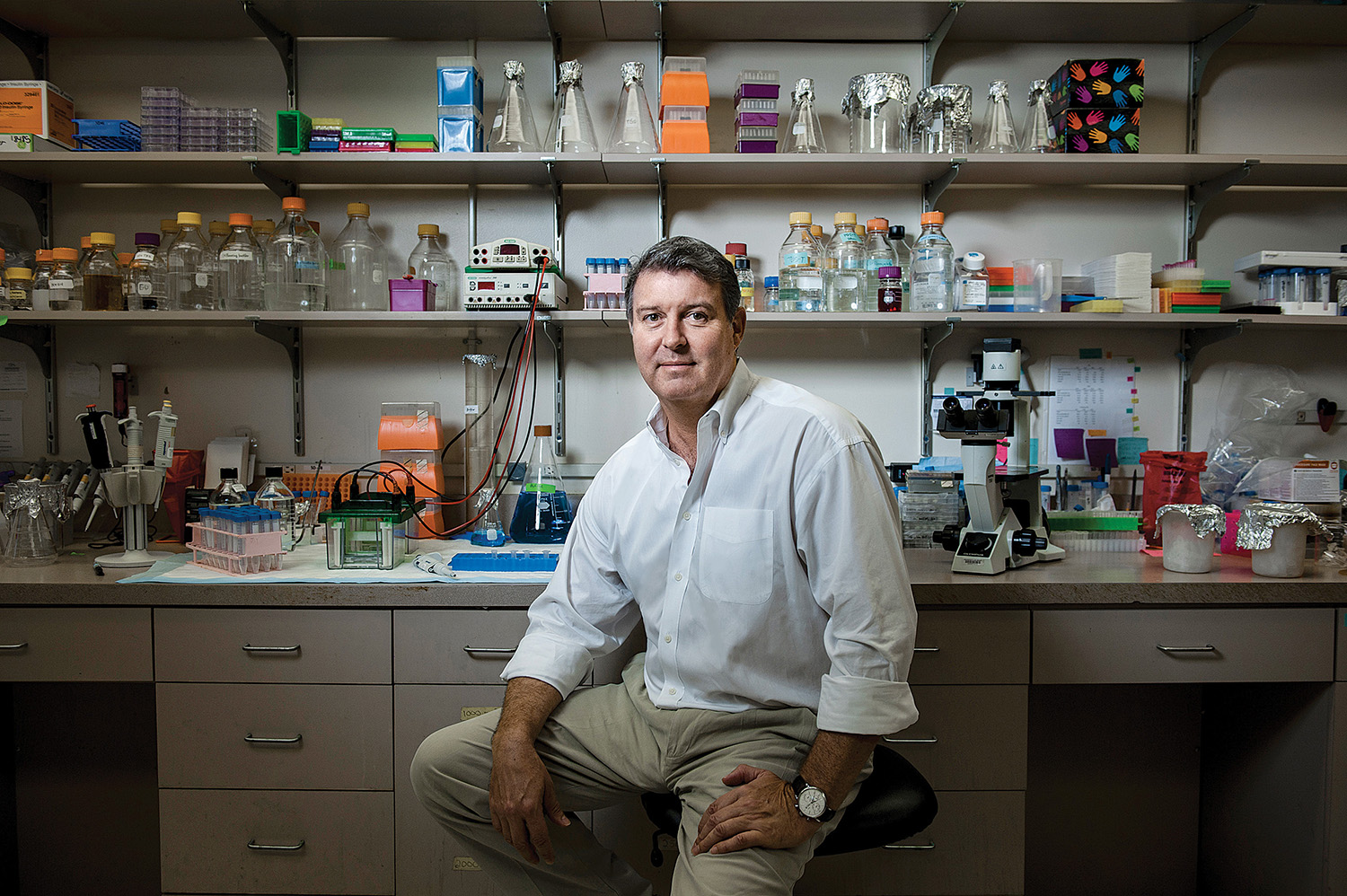It was 2008 when a British researcher working out of the Papanicolaou Building at Sylvester Comprehensive Cancer Center at the University of Miami Miller School of Medicine made a monumental scientific discovery. Glen N. Barber, Ph.D., and his team discovered STING, a pivotal pathway controlling immune responses that plays a critically important role in stimulating anti-tumor T-cell activity.
Dr. Barber, chair and professor of the Miller School’s Department of Cell Biology and a Sylvester member, has been recognized by the Cancer Research Institute (CRI) for that discovery. He and four other internationally renowned scientists are the recipients of the 2020 William B. Coley Award for Distinguished Research in Basic and Tumor Immunology. This award is named in honor of Dr. William B. Coley, known as the “Father of Cancer Immunotherapy.”

Dr. Barber’s research showed that laboratory mice generated without STING did not mount a proper immune response toward cancer cells. His work has developed into finding new ways to stimulate this important innate immune pathway to boost anti-cancer activity.
“We are now writing Phase I clinical trials with our own STING agonists that we have developed with the hope of enhancing immune responses to cancers such as leukemia,” Dr. Barber said. He anticipates starting those trials, funded by the National Institutes of Health, at Sylvester in early 2021.
A CRI press release explains that the Coley Award is given to one or more scientists for seminal discoveries in the fields of basic immunology and tumor immunology, and whose work has deepened our understanding of the immune system’s response to cancer and advanced the development of effective cancer immunotherapies.
Nobel Laureate James P. Allison, Ph.D., who presented the Zubrod lecture at Sylvester in 2018, will present the awards during the CRI’s annual gala, Innovators in Science and Philanthropy, held virtually for the first time on Tuesday, September 29.
“This is a very prestigious award, given by such an eminent figure and Nobel Prize winner,” Dr. Barber said. “It’s an honor to be recognized internationally by your peers for the significance of your work.”